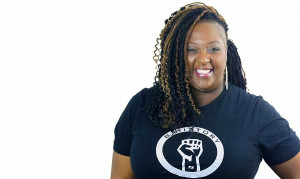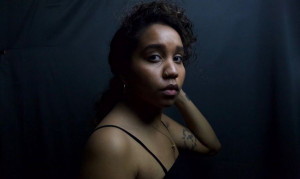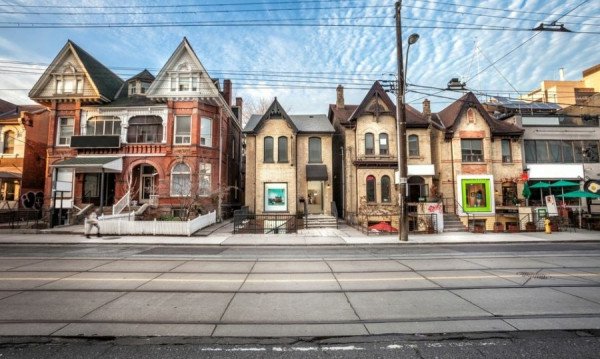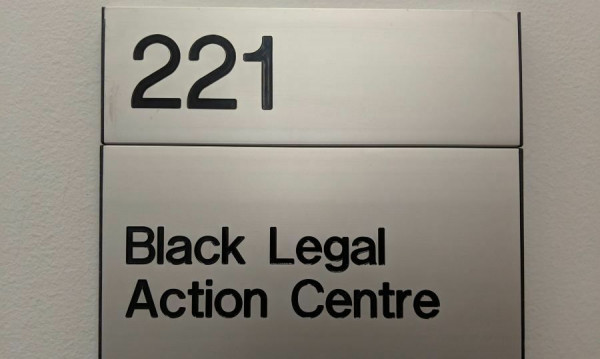The clinic delivers its mandates by conducting research, engaging in structural transformation, and providing legal services to Ontario’s Black community. The clinic has announced its new Board members: Erin Atkinson, Okeima Lawrence, Sarah Riley Case and Roy Williams. Aba Stevens, who was a member of the inaugural Board of Directors, is the new Chair of the Board. In addition to the following new membership roles and titles, BLAC also announced that Moya Teklu was its new Executive Director and General Counsel. Moya Teklu joined BLAC in early June 2021. We interviewed Teklu about herself, her new role, and exciting things to look forward to at BLAC.
Could you tell us a bit about yourself and your background?
I’m an immigrant. My parents moved to Canada when I was six years old. I went to law school at the University of Toronto. I was called to the bar in 2010. I went to undergrad at York University and graduated in 2005 with a double major in history and law and society. The challenges of the Black community and anti-Black racism have played a central role in my life. My entire legal career has been focused on human rights and discrimination in various forms. Prior to joining BLAC, I worked at Legal Aid Ontario for six years in a number of capacities, including preparing a draft for radicalized community strategies, providing staff support to the inaugural board of BLAC, and ensuring the delivery of clinic law services to members of the Black community. I also worked as a human rights and health equity specialist at Mount Sinai Hospital focusing on human rights, gender identity, disability, accommodation, and issues affecting the Black community. I was also a policy research lawyer at the African Canadian Legal Clinic. In addition, I have worked as an educator, and I have also developed and delivered anti-racism and anti-oppression training seminars for lawyers and judges across the country.
What challenges do Black communities face in the Canadian legal system?
Black people are disproportionately impacted based on the available data. One prominent example is the over-representation of Black people in federal correctional institutions, which is three times what it should be relative to our representation in the general population. Another example is the over-representation of children who are taken out of their homes and placed into child protective services, especially in Ontario. Finally, the rates at which Black children are suspended and expelled from school are also very high. Studies conducted by the Peel District School Board show that many Black children get expelled and suspended under the category of ‘other,’ which means it doesn't neatly fit into any clear issue. Oftentimes, our systems are created with specific people in mind and those people tend to be white, middle class, and able-bodied men. However, the approach needs to be centring the people at the margins. As lawmakers develop policies and laws, they should ensure that these marginalized groups are at the forefront of decision-making.
Why did you decide to join BLAC?
I am deeply invested in this work and I feel quite fortunate to do this work. I've been engaged with the community as a law student, as an undergrad student, and as a high school student. The mandate of the organization appeals to me as well. I also think the majority of Black people in Canada live in Ontario, and BLAC has a provincial mandate, which to me means that BLAC can potentially impact the lives of almost every Black person in this country. I think BLAC, while new, has already done a lot of great work in law reform and interventions. Who wouldn't want to work for them? That said, I fully appreciate that there will be some challenges. It’s a very big role to step into and there's a lot of work to be done, but I'm looking forward to doing it.
What is your immediate priority in your new position at BLAC?
I have a lot of ideas, but I really am just the person who executes the community's overall vision. Any changes we make will be aligned with the goals of the community, membership, and board of directors. My main focus is the justice system and how it impacts the lives of Black Canadians and Black people in Canada, and the differential treatment that members of our community experience in terms of criminal justice, education, and immigration. Therefore, I try to align the work that BLAC is already doing in this regard in a more strategic way. Besides, the board's priority is to develop a strategic plan for the organization that will cover the next 3-5 years and my view is that our strategic plan will involve community engagement and reaching out to stakeholders to further expand the vision.
There were widespread community concerns when the African Canadian Legal Clinic was dismantled. BLAC promised to be a reliable replacement but has struggled to stay relevant. It took more than a year for them to create a website, for example. Can you speak directly to community members who feel that those behind BLAC destroyed a good thing and failed to replace it with something better?
To clarify, the board, membership, and staff at BLAC had absolutely nothing to do with the defunding of the African Canadian Legal Clinic. It's all public record and the reasons for that decision are lengthy, but there was no involvement of BLAC in that decision. BLAC is an independent and entirely separate corporation. It is doing what it was being funded to do, which is to deliver legal aid services to address individual and systemic anti-Black racism. We get calls every day from people who need our services. There's no shortage of people reaching out to our organization for legal advice and representation, training, or educational support. Our social media presence is far-reaching and people engage with us through that. I believe BLAC is quite relevant and it's doing a lot of work in the community. We're trying to do as much as we can to address the needs of the community and I would encourage members of the community to engage with the board, to become members of the organization, and to reach out to our website to voice those concerns. As for the delay in the development of a website, I can't speak to that, because I joined the organization a month ago and wasn't involved in that aspect of the work.
We’ve heard from many community workers, people who work within the education system for example, that BLAC has been unresponsive to their requests for legal help for parents and students. Who is BLAC’s priority to serve right now?
I think some of those complaints may stem from a lack of clarity about our case selection criteria. It's also important to note that currently, we do not provide services in the areas of Criminal Law and Family Law. We do make submissions on legislative changes and policy decisions related to Criminal Law. We are also engaged in a lot of work with respect to police complaints. But we are currently not able to take on cases where someone has been charged criminally. We have done public legal education sessions in the area of child welfare and child protection. We deliver services in the area of education for children who are facing suspension or expulsion. We also have a project that's focused on best practices and creating a network of Black parents and children across the province who have experienced and have addressed or working to address anti-Black racism in the education system. We do provide some advocacy as well in education. Our priority is people who have experienced anti-Black racism in housing, education, employment, and social benefits. If somebody called us and nobody got back to them, I would encourage that person to follow up with us. We also have a complaints policy to resolve these issues.
There’s been a very high turnover of lawyers within BLAC, do you have any sense of why the organization has been unable to retain good talent, and what is your plan to resolve that going forward?
I know that there has been turnover, but I can't say if it's high or low because I don't know what it's being compared to. My objective is to reduce, if not eliminate, turnover among the staff. This means compensating them relative to what they would be making elsewhere in the clinic system or if they worked at a comparable organization. It's important to make sure they are growing within their roles and taking on more meaningful work. I've begun to reach out to the staff and understand what their needs are. I can confidently say that everybody is incredibly engaged, very intelligent, and very knowledgeable, so I look forward to creating an environment where they can thrive. Besides, from law to business, to expertise in critical race theory, to experience creating and leading Black-led and Black-focused organizations, the Board members bring a range of experience and expertise to the Board. Their appointment means that the governance and direction of BLAC are in good and capable hands.
Some of the most marginalized folks in our community include refugees and LGBTQI folks. How is BLAC planning to support them?
BLAC is working to support the LGBTQI community and improving our internal capacity to make sure that we are creating a safe space for people who are members of that community by providing training and reviewing our policies. We are also planning to expand to the area of immigration law.
What is the biggest challenge you are expecting and how are you planning to address it?
BLAC is a very small organization compared to the seriousness and magnitude of the issues addressed. So I think our biggest issue is going to be prioritizing how we address these issues and allocate our resources to make progress. The way that I'm hoping to address this challenge is through the development of a strategic plan.
What is your message to the community?
I hope that the members of Ontario's Black communities will reach out to and engage with BLAC, both to provide us with feedback and hold us accountable when they think that we are not meeting up to their expectations. Again, BLAC is a member-driven organization. So people can apply and become members of the organization, join the board of directors and committees, and support the organization in that way.
Photo by: Trevor Francis
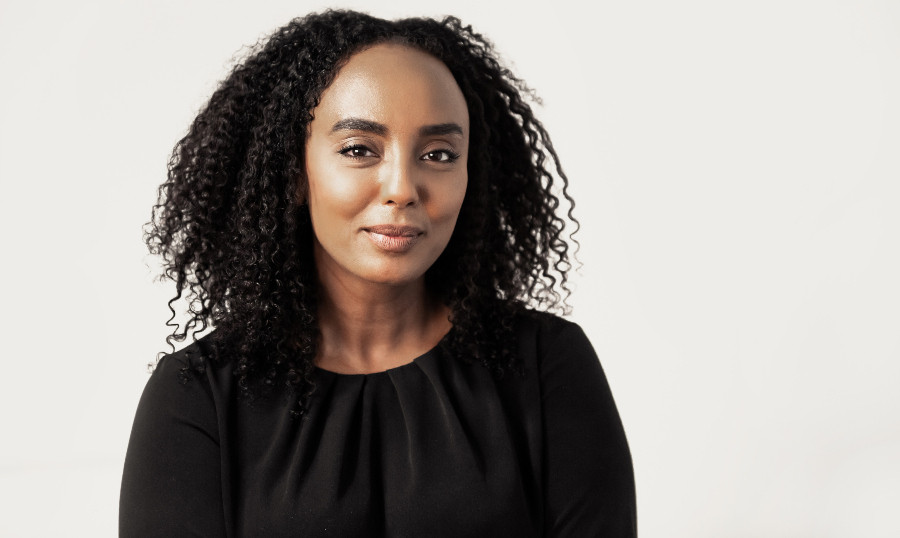
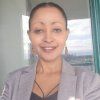 By
By 




